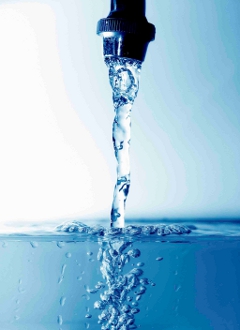
"Water, water, everywhere," is the motto by which Ayyappa Mahadevappa Masagi lives. When it's believed that the next world war will be fought over water, at a micro level in Bangalore, people working for the water utility are roughed up by consumers who haven't seen a drop of water trickle from their taps in days. Says Masagi, "Who said there's a water crisis? We have plenty of water, even in Bangalore. It's just that we haven't been looking at the available, easy solutions."
Masagi isn't trained scientifically. He's just an ordinary man who uses native intelligence to solve water woes. This 54-year old `Water Gandhi' from rural Karnataka uses over 100 tried-and-tested techniques to end water poverty. His success stories now run into many books and states across India.
WATERMAN'S WAYS - He injects life even into dried and dead borewells and ensures that not a single rain droplet escapes your house unused, not even the grey water from your bathrooms and kitchens. A farmer's son, Masagi trusts in non-irrigation agricultural practices and in industrial development co-existing with ecology.
Today, he has found easy water solutions for at least 200 apartments and over a thousand independent houses in Bangalore. The impressive list includes 41 industries and 17 ongoing projects.
Masagi asserts that he can harvest a whopping 3 crore litres of water along every km of Metro track per year, with a one-time investment of just Rs 20 lakh. "I can do it right now, if they can trust me," he says.
His solutions for houses promise a minimum 1.2 lakh litre annual rain harvest for a house on a 30x40 sqft site with just a 1sqm roof. This entails a one-time investment of Rs 10,000 with no maintenance. His own house in Sahakarnagar, North Bangalore, is a prime example. The three-storeyed building with five houses on a small 23 x 33 sqft site has survived on just a 68-ft borewell for the past 26 years and without any complaints.
Thus started his success with the `recharge shaft' method of water harvesting where he builds a sub-soil charging system in and around the borewell area that's connected to a rainwater harvesting unit and filtered grey water stock. The borewell depths are restricted to only 100-150 feet.
His client, Kennametal on Tumkur Road, once spent Rs 1.5 lakh every month buying water from 10km away. Today, it records an impressive Rs 25 lakh annual savings only from water conservation, thanks to the system set up in 2005 on Masagi's principle. Over the years, their water consumption has also reduced by 15%.
"Awareness to conserve water among people is increasing, but this awareness translating into action on the ground is very slow. April-June is the right season to start. The next season, you can reap a good rain harvest," assures this water warrior. His next target is to work on successful water conservation solutions for hotels.
 THE DRY START
THE DRY STARTMasagi hails from drought-hit Nagaral village of Gadag district in Karnataka. He started thinking seriously about water when just a child of 6 years. "My mother woke me up every day at 3am to fetch water from a `devil pit' in a village that was 2 km away. During summer, it used to get very dry and only children like me could help bring water from it. From there, I started thinking seriously about water," he says.
Initially, his obsession for water was also ridiculed by his own near-and- dear ones, including his wife. Acute poverty kept him off serious science studies. His first success with water experimentation was recharging his two dry borewells on his 6-acre village farm during the drought in 2003.
Today, he has a team of 18 water warriors and 100 indirect labourers. In 2009, he bagged the National Award for application of science and technology in rural development (2009). He is now heading to South Africa to help an industry there with water conservation.
SOME SUCCESS STORIES
* Akshaya Patra mega kitchen in Rayapur now saves Rs 2.5 lakh per annum on water and harvests its 1.3 crore litre requirement from an average 1,000 mm rainfall annually
* An old-age home in Basavananagar had its hard water changed to soft and sweet within a month and low-yielding borewells rejuvenated

















No comments:
Post a Comment